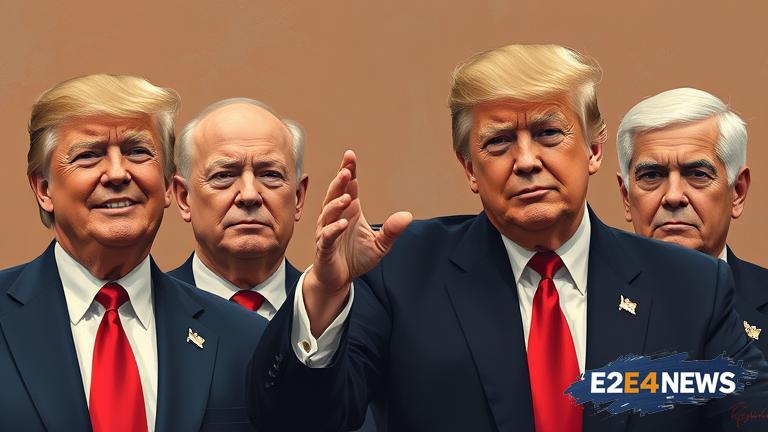Former US President Donald Trump has made a bold claim regarding his economic policies, stating that his use of tariffs prevented four out of seven potential wars. This statement has ignited a fierce debate about the effectiveness of economic diplomacy in preventing conflict. Trump’s assertion is based on his belief that his aggressive tariff strategy deterred other nations from engaging in military action against the United States. The former president has long been a proponent of using economic leverage to achieve foreign policy goals, often to the dismay of traditional diplomats and economists. Critics argue that Trump’s approach to international relations, marked by a willingness to impose tariffs and engage in trade wars, has done more harm than good. They point to strained relationships with allies and the potential for retaliatory measures from affected countries. Despite these criticisms, Trump remains adamant that his strategy has been successful, citing the lack of major conflicts during his presidency as evidence. However, experts caution that the relationship between trade policies and the prevention of war is complex and multifaceted. Many factors contribute to a nation’s decision to go to war, including political, historical, and strategic considerations. The use of tariffs as a tool of economic diplomacy is not new, but its effectiveness in preventing conflict is still a topic of discussion among scholars and policymakers. Trump’s claim has also raised questions about the role of economic sanctions in international relations. While sanctions can be an effective way to exert pressure on a nation without resorting to military action, they can also have unintended consequences, such as harming innocent civilians or driving a targeted country further into the arms of adversaries. The international community has seen numerous examples of economic sanctions being used to achieve political goals, with varying degrees of success. In some cases, sanctions have contributed to regime change or a shift in a nation’s behavior, while in others, they have had little to no impact. The debate over Trump’s claim highlights the ongoing discussion about the best approaches to achieving peace and stability in a rapidly changing world. As nations continue to navigate complex geopolitical landscapes, the use of economic diplomacy, including tariffs and sanctions, will remain a critical component of foreign policy. Whether or not Trump’s strategy was effective in preventing four wars, as he claims, the conversation it has sparked underscores the need for a nuanced understanding of the interplay between economics and international relations. Furthermore, the claim has implications for how future presidents might approach foreign policy, potentially leading to a reevaluation of the role of economic leverage in preventing conflict. The response from the international community will be closely watched, as nations consider how to balance economic interests with the need to maintain peace and stability. In conclusion, Trump’s assertion that his tariff policies prevented four potential wars has added a new layer of complexity to the discussion on economic diplomacy and its role in international relations. As the world moves forward, it will be essential to consider the potential consequences of using economic leverage as a tool of foreign policy, weighing both the benefits and the drawbacks of such an approach. The claim also raises questions about the transparency and accountability of economic diplomacy, highlighting the need for clear communication and cooperation among nations. Ultimately, the effectiveness of Trump’s strategy, and the broader implications of using tariffs as a means of preventing war, will continue to be debated by scholars, policymakers, and the general public. The future of international relations will likely involve a combination of economic diplomacy, traditional diplomacy, and other approaches, as nations seek to navigate an increasingly complex and interconnected world.
